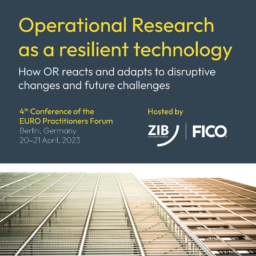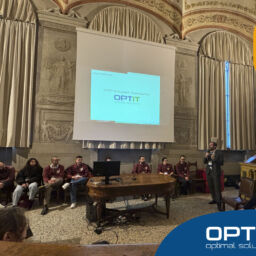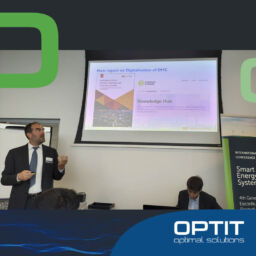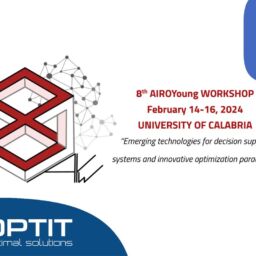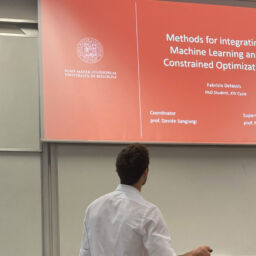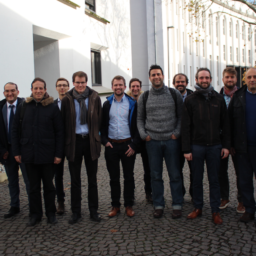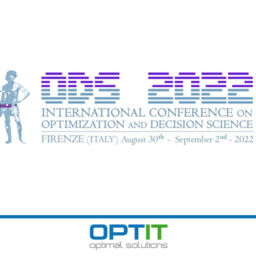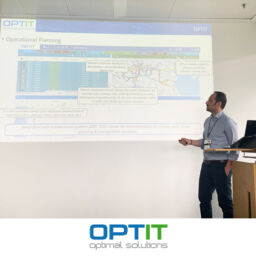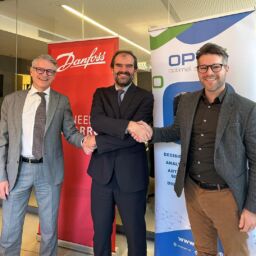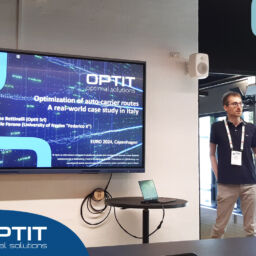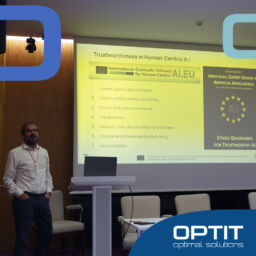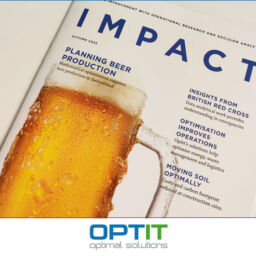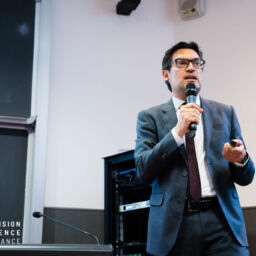This year as well, Optit proudly renews its support to AIRO, the national association on operations research, with the sponsorship of the International Conference on Optimization and Decision Science (ODS23), which will be held in Ischia.
Operations Research (OR) plays a role of fundamental importance in the contemporary world. It deals with applying mathematical and analytical methods to solve complex problems related to resource management, optimization of decision-making processes and efficient planning. In an era where resources are limited and organizational and industrial challenges are increasingly intricate, OR offers tools for making informed and optimal decisions. From logistics to production, from resource allocation to planning, OR allows you to optimize operations, reducing costs, time and waste. Furthermore, in the context of the growing complexity of technological and social systems, OR contributes to addressing global issues such as climate change or the optimization of transport networks.
Through the use of cutting-edge OR techniques, Optit has been solving complex problems for various subjects, public and private, in the logistics, energy and environmental fields for years.
At ODS 2023 Optit will participate with three presentations showing the solution of complex problems in the field of waste collection (Optimization of on-demand waste management services), transport (The use of ALNS(Adaptive Large Neighborhood Search) for the concrete problems of routing) and energy efficiency (Optimizing smart energy systems: a non-linear approach).
Optit’s participation in ODS2023 highlights its unique synergy between academic innovations and practical applications, confirming its position at the forefront of combining research and concrete results for its customers.
Below is the abstract of the three speeches:
Session Vehicle Routing III – Wednsday 6 8.30.10-30
Optimization of on-demand waste management services
Antonio Napoletano and Stefano Bortolomiol of Optit and Daniele Ferone of University of Napoli Federico II
Various waste management services are offered on demand, meaning that resources are assigned to tasks on a day-by-day basis as opposed to following a predefined long-term calendar. The on-demand approach is becoming more and more attractive also thanks to the spreading of IoT sensors that measure the amount of waste in a container and trigger a service request only when needed. Examples of applications include the disposal of bulky waste using roll-off containers and the emptying of large bins with different waste streams located at large facilities (e.g. hospitals, schools, supermarkets). The challenges of optimizing the operations of on-demand waste collection services are multidimensional. In practice, problems are generally tackled in two phases: (i) capacity planning, informed by demand forecasts on a time horizon of 1-2 weeks, and (ii) daily planning, where actual service orders are assigned to routes, which are in turn assigned to the available vehicles and drivers.
The focus of our presentation is on the optimization models and algorithms that support the daily planning of an Italian waste management company. Mathematically, on-demand waste collection problems can be modeled as capacitated multi-trip vehicle routing problems with pickups and deliveries, heterogeneous fleet, multiple time windows and a set of compatibility constraints between vehicles, drivers, nodes and types of goods.
Additional problem-specific features include the assignment of drivers to shifts which include scheduled breaks and the use of assets such as hooklifts to handle the loading and unloading of goods. Since the problems under consideration are strongly constrained, we adopt a flexible approach based on an Adaptive Large Neighborhood Search metaheuristic and we evaluate the performance of a number of ruin and recreate operators. We conclude by describing the decision support system in which these optimization models and algorithms are embedded. The tool is integrated with the waste management company’s information systems and allows a user-friendly interaction with the proposed solutions, thus bridging the gap between applied research and its practical use.
Session Vehicle Routing IV – Thursday 7 11.00-13.00
An Adaptive Large Neighborhood Search for a Real-World Vehicle Routing Problem
Daniele Ferone and Paola Festa, University of Napoli Federico II, Antonio Napoletano and Stefano Bortolomiol of Optit
The European Environment Agency reported that about 25% of the total greenhouse gas emissions in Europe is due to the transportation sector. Therefore to reach net-zero greenhouse gas emissions by 2050, it is crucial to cut emissions due to this sector. By pursuing this goal, sustainable city logistics emerged as a concept for reducing the negative impact of urban transportation activities on society and the environment.
The Vehicle Routing Problem is one of the most studied problems in the Operations Research literature, and during the last years, many variants to address sustainability goals have been proposed. Nevertheless, in the real-world, each courier has its specificities and it is not possible to apply one of the many variants of routing problem presented in the literature to solve its instance.
This work emphasizes this concept focusing on the solution of a real-world scenario: the planning of the deliveries of a distribution center in the north of Italy. We will show that the requests of the courier impose a peculiar mixture of constraints, like forbidden vehicle-areas pairs, a maximum distance between deliveries, conflicting clients, and others. The problem has been solved with a tailored approach based on an Adaptive Large Neighborhood Search in order to minimize delivery costs and, at the same time, minimize CO2 emissions.
The solutions have been validated through a comparison with historical data and hand-made solutions. Moreover, we performed a deep computational experimentation, with the aim of understanding how and how much the performance of the solution approach is influenced by the different constraints imposed by the courier.
Operations Research for Energy and Green Logistics I – Tuesday 5 8.30-10-30
Optimization of Smart Energy Systems: a nonlinear approach
Caterina Tamburini, Andrea Bettinelli and Matteo Pozzi. Optit
Smart Energy is the intelligent optimization of energy costs and efficiency, using innovative technology to build and operate a sustainable energy management system. Such a system combines several generation units to produce a given demand for heat, electricity, etc. Typical units are: combined heat and power (CHP) units, absorption chillers, storages, heat pumps and boilers, etc.
Unit Commitment (UC) is a key problem in this context. The goal in UC is to determine a schedule for the machines that maximize the operative margin, satisfying a forecasted heat demand coming from a district heating network as well as functional and regulatory constraints deriving from system composition. Usually the UC problem is formulated as a mixed integer linear programming problem, where the machines are supposed to work in parallel. But in this work, we present a particular case that gives rise to a nonlinear version of the short term UC problem, so we formulate and solve a mixed integer nonlinear and nonconvex optimization model.
In the system we studied, both the temperature and the water flow must be modelled explicitly introducing several nonlinear constraints, that must be satisfied along with all the classical time binding constraints we have in the UC problem.


